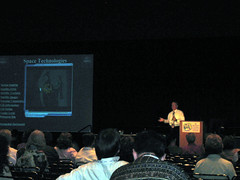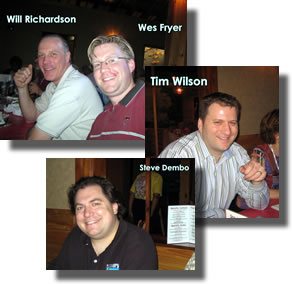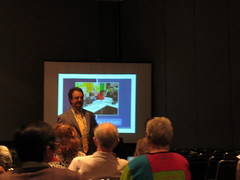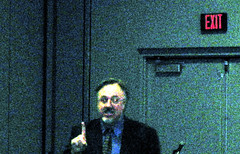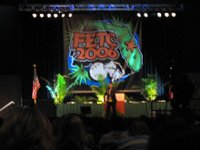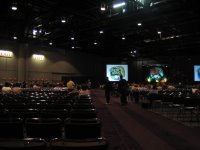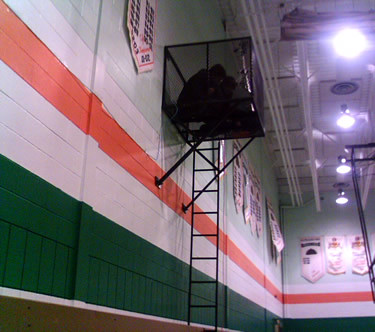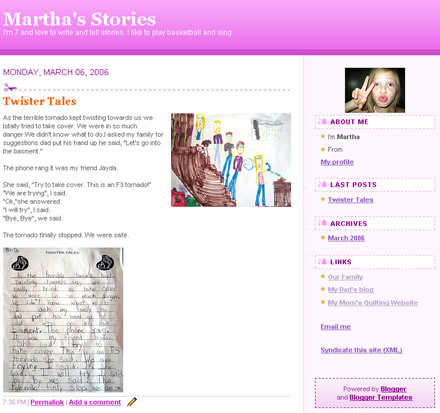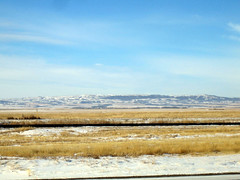Vlog testing
Thanks to Miguel's love of open source and time spent with VLC, he showed how to rip audio from a video. I also realized from this demo you could easily transcode any video to the .mp4 format and thus make it part of your podcast subscription.
Here's the credits clipI stick on the end of my videos as a sample.
Another one of those, "I'm not sure how this will work but it's interesting".
Update1:
I'm having some trouble getting the video to download as an itune subscription. First issue was my feedburner feed was invalid. Discovered that copying and pasting from Word, creates major issues. Fixed that, now it's still not downloading the video. Posted a message to Feedburner Forum and will await their response.
Update2:
Thanks to the good folks at feedburner, they let me know the following was wrong with my video:
So, looks like your mime type is incorrect. The mime type for the video should be set as video/mpeg rather than text/plain. This is something that needs to be done from the server where the media file is hosted. You may need to contact your hosting company for help depending on how familiar you are with changing mime types. It isn't a time consuming process though once you know where to look. It's basically one click!I wouldn't have a clue how to change the mime so I'll upload it to archive.org. Hopefully it will work now.
As soon as you get the mime type changed you will need to go into your FeedBurner account and head over to the troubleshootize tab. You'll need to scroll down until you see the "resync" link. Click the resync link and you'll be good to go.
